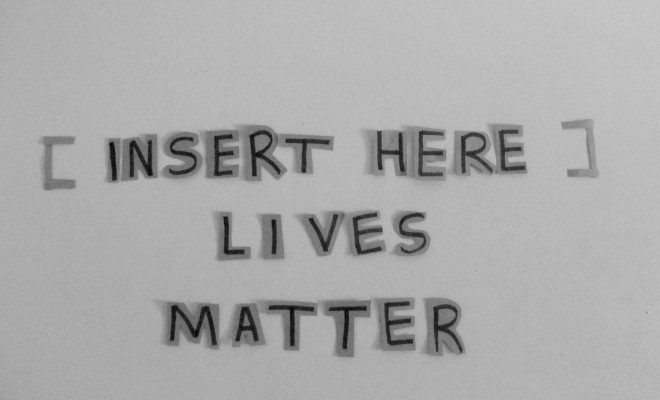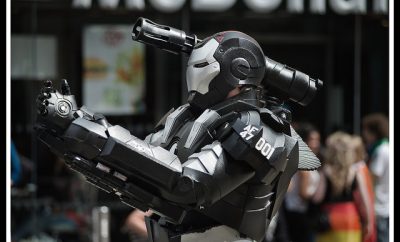 Image courtesy of [Yasmeen via Flickr]
Image courtesy of [Yasmeen via Flickr]
Society and Culture
Unarmed White Teen Fatally Shot by Police Officer: Do #AllLivesMatter?
Zachary Hammond, 19, was on a date on July 26 when he was fatally shot twice by a police officer during a drug bust in South Carolina.
Hammond was driving his car when police attempted to make a stop. The undercover officers staged a drug bust with Hammond’s 23-year-old date, Tori Morton, who had ten grams of weed on her person ready to sell. During the encounter, Morton was arrested and charged with possession, and Hammond was shot twice, in the shoulder and in the torso. The police officer who shot him claimed it was in self defense. He claimed Hammond was driving toward him with his vehicle when he fired the two shots.
However, the autopsy report seems to clearly disprove the police officer’s claim of self defense. The family’s attorney, Eric Bland, stated,
The shots were so close in proximity to each other that it would be physically impossible unless the car was stopped and the officer came up very close to an open window.
Hammond’s death has prompted numerous questions, few answers, and, surprisingly, no national outrage. Hammond’s family wants to know why there hasn’t been much coverage, and looked to the so-called #AllLivesMatter advocates for answers. Bland told The Washington Post this week:
It’s sad, but I think the reason is, unfortunately, the media and our government officials have treated the death of an unarmed white teenager differently than they would have if this were a death of an unarmed black teen. The hypocrisy that has been shown toward this is really disconcerting…The issue should never be what is the color of the victim. The issue should be: Why was an unarmed teen gunned down in a situation where deadly force was not even justified?”
While it is extremely unfortunate what happened to Zachary Hammond, the reason there are no advocates responding in outrage to Hammond’s death is because the #AllLivesMatter movement does not really exist. Instead, the #AllLivesMatter movement serves as a detraction from the acknowledgement of black lives being targeted by the police. That is not to say those who advocate for “all lives matter” do not care about Hammond’s death, but there is no reaction because the movement does not really exist. As a result, the response from the #BlackLivesMatter movement has been in many ways focused on pointing out the lack of attention from #AllLivesMatter.
Hammond’s death however, does raise continued questions about the way police officers respond to what they classify as “dangerous situations.” What does this say about the way police officers have been trained? In the situations where their responses have resulted in the loss of black lives, it was very easy to assume their motives–usually proven through series of incidents with police officers who have histories of racist behavior, recordings that show intentions, and many deaths that often seemed staged or unclear. But in this specific case, the motive for killing Hammond is not clear at all. Police officers are now being faced with even more questions in regard to how they effectively execute their jobs. Now that these white parents are asking the questions, maybe everyone will get the answers they deserve.








Comments